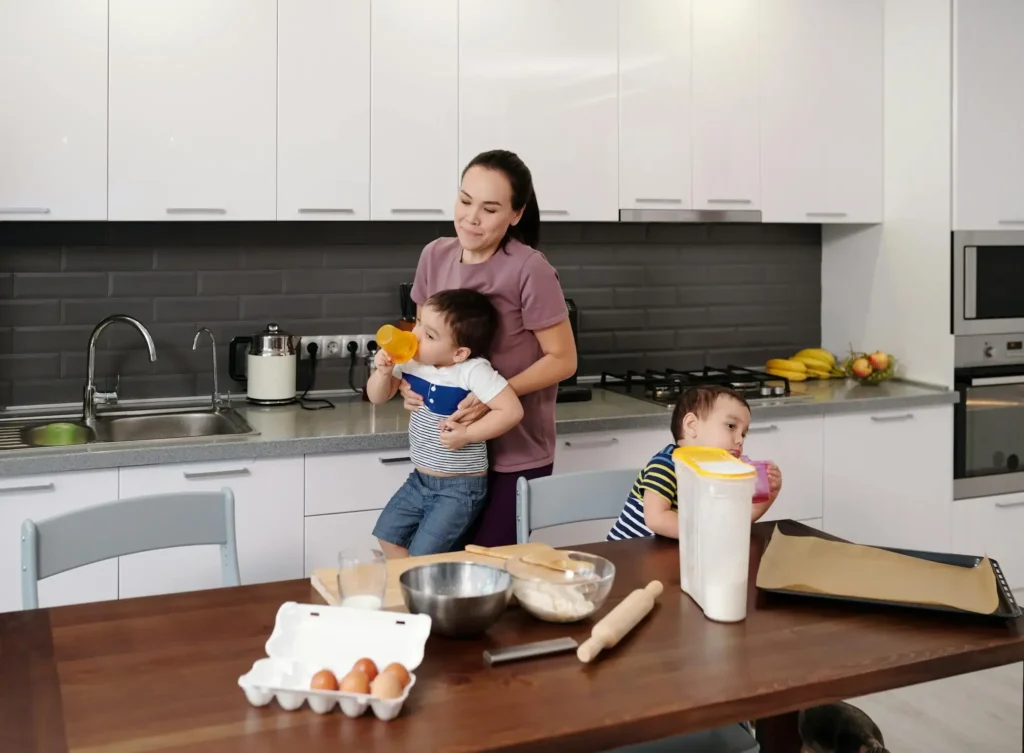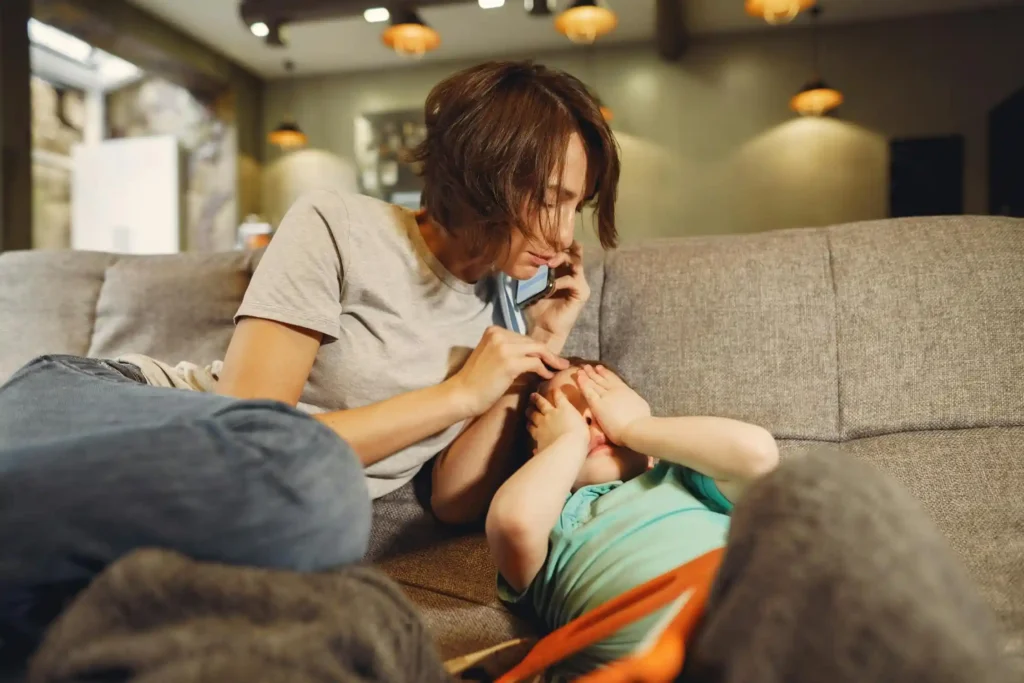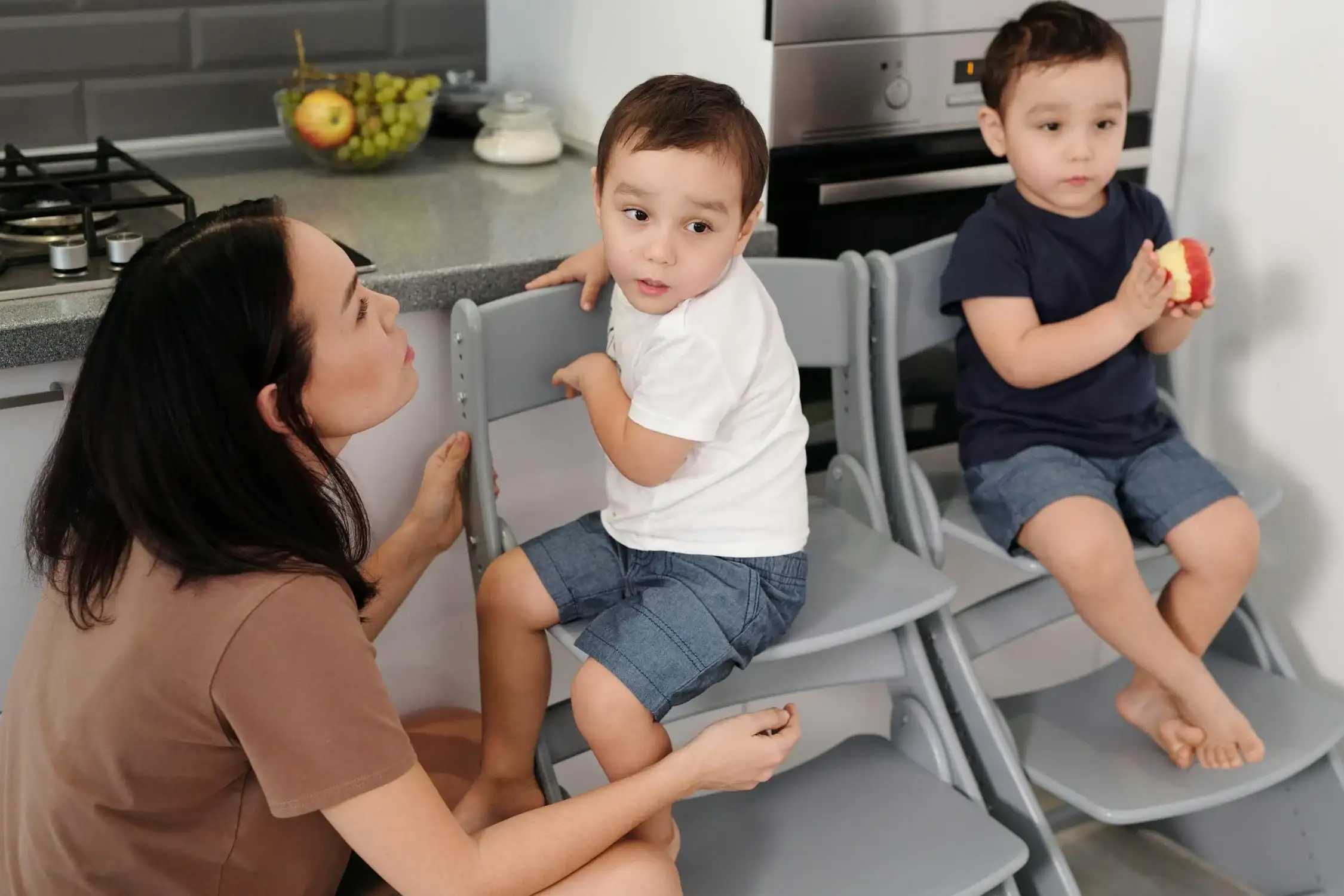Solo Parenting vs. Single Parenting: Understanding the Differences and What They Mean
Knowing how solo parenting and single parenting differ can help you manage the ups and downs of raising kids on your own. That’s why this discussion about solo parenting vs. single parenting is important.
Whether you’re taking care of your children without another parent’s help for a while or you’re the only parent all the time, understanding these roles can make a big difference.
Let’s dive into what these terms mean and how they might affect you so you can feel more confident and supported on your parenting path.
Contents
A Quick Glimpse
| Aspect | Solo Parenting | Single Parenting |
| Definition | Temporary care of children without the other parent. Often due to work travel, military deployment, etc. | Permanent care of children without regular aid from another parent. Often due to divorce, choice, or bereavement. |
| Emotional Impact | May feel temporarily overwhelmed but with the expectation of support returning. | Requires long-term resilience and coping with being the sole decision-maker. |
| Support Systems | Support from partner, family, friends, and community during partner’s absence. | Relies heavily on a strong network of family, friends, and community organizations for support. |
| Financial Considerations | Temporary financial adjustments with potential continued contributions from the other parent. | Takes on the role of primary breadwinner, often requiring careful budget management and financial assistance. |
| Parenting Styles | Temporary adaptation of parenting style, knowing the partner’s return is anticipated. | Development and maintenance of a consistent long-term parenting style independently. |
| Responsibilities | Shared responsibility with the partner, albeit temporarily solo-managed. | Sole responsibility for all parental duties and decision-making. |
What Is Solo Parenting?

Solo parenting occurs when you temporarily take on the role of the primary caregiver without the other parent’s direct involvement.
This situation is often due to circumstances where the other parent is unavailable. As a solo or co-parent, you might still have the support and involvement of your partner, but you handle most day-to-day responsibilities during these times.
Common Situations Where Solo Parenting Occurs
- Your partner travels frequently for work.
- The other parent is in the military and deployed overseas.
- You are managing the household while your partner attends school or training programs in another city.
What Is Single Parenting?

Single parenting refers to the situation where you are the primary and often sole caregiver for your children without regular support from another parent.
This role arises for a variety of reasons; some are out of hand, and some are out of choice. In this scenario, you are fully responsible for both the emotional and financial support of your children.
Common Situations Where Single Parenting Occurs
- You have experienced a divorce or separation from your partner.
- You chose to have a child on your own, such as through adoption or assisted reproductive technologies.
- You have lost a partner and are now the primary caregiver.
The Difference Between Solo Parenting and Single Parenting in Detail
Now that you’ve had a quick glimpse into the difference between the two parenting styles, I’ll delve into more details.
1. Emotional and Mental Aspects
Solo parenting and single parenting can affect your emotional health in unique ways–and influence child development.
As a solo parent, you might find the temporary responsibility of managing all parenting tasks on your own to be stressful. Feelings of isolation or being temporarily overwhelmed are common, but knowing that your partner will eventually return can offer some emotional support.
On the other hand, single parenting often requires developing long-term resilience. Without the regular support of another parent, you may face challenges such as loneliness and stress related to being the sole decision-maker for your family.
2. Support Systems

The type of support system you have can differ greatly between solo and single parenting.
As a solo parent, you might lean on family, friends, and community resources while the other parent is away. Regular communication with your partner, even from afar, can be essential for effective co-parenting.
In contrast, if you’re a single parent, building a strong network of support becomes crucial. Family, friends, and community organizations can provide emotional support and practical help, such as childcare or financial assistance, to offer a stable environment for your children.
3. Financial Considerations
Solo parents might encounter temporary financial adjustments due to the other parent’s absence, but these situations are often short-term.
Single parents, however, frequently take on the role of primary breadwinner. This may involve seeking financial assistance or carefully managing your budget to ensure stability and meet the needs of your children.
4. Parenting Styles and Responsibilities
The way you approach parenting duties can also differ between these two roles.
As a solo parent, you may find that you adapt your parenting style temporarily to manage all responsibilities effectively, knowing that the other parent will eventually share those duties again. This can involve adjusting your approach to discipline, routines, and household management.
For single parents, the challenge often lies in maintaining a consistent parenting style over the long term. This may mean developing your approach to discipline, education, and daily routines single-handedly.
In both cases, the need to establish clear boundaries and routines can help create a stable environment for your children.
Common Challenges and How to Overcome Them

Being a solo or single parent can be tough, but you can still manage your responsibilities and create a positive environment for your children. Here are a few pointers on how to do that.
Balancing Multiple Roles
- Solo parent: You might temporarily handle all aspects of managing a household and raising children, which can be overwhelming. Time management is key; creating a flexible yet structured daily routine can help you stay organized until the other parent returns.
- Single parents: You deal with this balancing act long-term. Prioritizing tasks, setting realistic goals, and establishing a reliable support network can help you manage your time and responsibilities more effectively.
Communication
- Solo parent: Maintaining open lines of communication with your partner, even from a distance, is crucial for co-parenting. Sharing updates about your children’s activities, needs, and challenges helps ensure everyone stays informed and involved.
- Single parent: You need to develop strong communication skills to manage your relationships with your children and other support networks. If you’re co-parenting with an ex-partner, establishing clear communication guidelines and agreements can help minimize misunderstandings and conflicts.
Seeking Help and Resources
- Solo parent: You may benefit from reaching out to family or friends for temporary assistance with childcare or household tasks. Don’t hesitate to lean on community resources, such as parenting groups or online forums. It’ll make you a better parent.
- Single parent: You might need more long-term solutions, such as financial assistance programs, counseling, or joining support groups specifically for single parents. Building a network of trusted people to call on in times of need can be invaluable.
The Positive Side of Solo and Single Parenting

While solo and single parenting can present challenges, these roles also offer unique opportunities for personal growth, stronger family bonds, and creative problem-solving.
Personal Growth
Being a solo or single parent can lead to significant personal growth. As you handle the demands of this parenting role, you’ll likely develop new skills and strengths.
Solo parenting might teach you flexibility and adaptability as you manage the household temporarily on your own.
Single parenting, with its long-term responsibilities, often fosters resilience and strong problem-solving abilities. Both situations can help you build confidence and a deeper understanding of your own capabilities.
Stronger Family Bonds
One of the unexpected benefits of solo and single parenting is the opportunity to develop stronger bonds with your children. By spending more time together, you can create meaningful memories and traditions unique to your family.
Solo parents might find that their children become more independent and understanding when they see you taking on all responsibilities while the other parent is away.
Single parents often form a close-knit team with their children, working together to overcome challenges and celebrating successes along the way.
Opportunities for Creativity and Innovation
Parenting alone, whether temporarily or permanently, can spark creativity and innovation in managing household tasks and routines. You may find yourself coming up with inventive ways to entertain your children, solve day-to-day problems, or make the most of limited resources.
Embracing this creativity can not only make daily life more enjoyable but also instill a sense of resourcefulness in your children.
Independence and Empowerment
Both solo and single parenting offer a unique sense of independence and empowerment. Successfully managing your household and raising children on your own can be incredibly rewarding.
This independence can teach you and your children the value of self-reliance and the satisfaction that comes from achieving goals together. As you tackle challenges and celebrate milestones, you’ll likely find greater confidence in your parenting abilities.
Final Thoughts
Solo and single parenting each come with their own challenges and opportunities. As a solo parent, you may juggle responsibilities while waiting for your partner’s return. As a single parent, you manage everything on your own long-term. Both roles require resilience and creativity but also allow for personal growth and strong family bonds.
Remember, you’re not alone. Many resources and communities are available to support you, offering advice, financial assistance, and emotional backing. By focusing on the positives and reaching out for support, you can create a nurturing environment for yourself and your children.
If you want to learn more about parenting, check out my blog!

